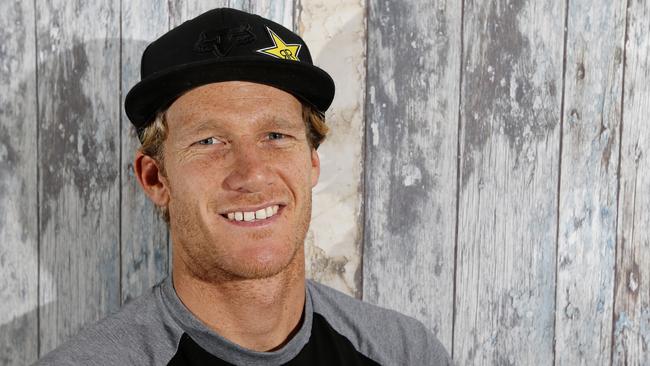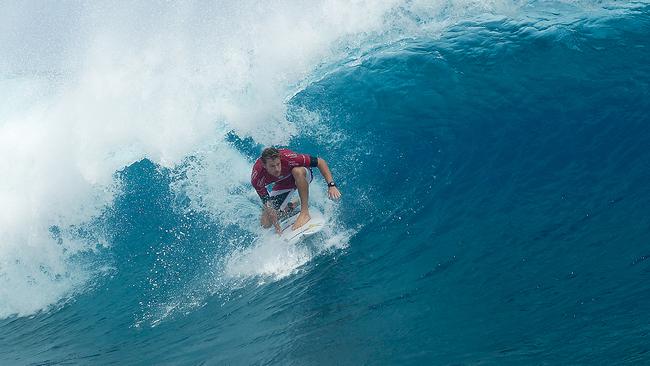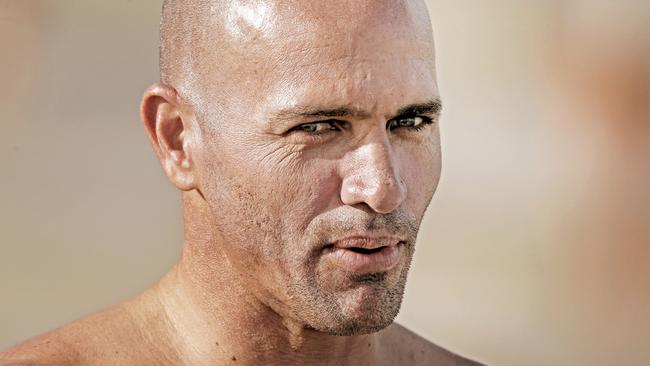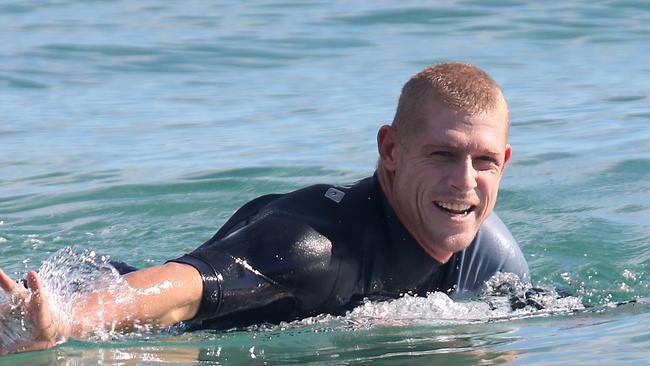Gold Coast surfer’s identity stolen and used on popular dating app Tinder
THE wife of one of the Gold Coast’s best surfers had a massive surprise when she was shown an image of her husband’s face on dating app Tinder.
Gold Coast
Don't miss out on the headlines from Gold Coast. Followed categories will be added to My News.
THE wife of one of the Gold Coast’s best surfers had a massive surprise when she was shown an image of her husband’s face on the dating app Tinder.

Top world tour surfer Bede Durbidge immediately copped flak from his world-famous surfer friends Mick Fanning, Joel Parkinson and Kelly Slater when his wife Tarryn shared an image of the profile of an obvious impostor.
MARGOT ROBBIE’S RACY MAG COVER
SUPERSTITION UNLUCKY FOR BLACK CATS
“Mike” is apparently a 32-year-old “easygoing (sic) surfer from the sunny coast”.
The profile stated “Mike” was “keen to chill, chat, hangout, get together, enjoy eachother (sic)”.
“My time is shared between here and my work in brissy (sic) so if you see me here let me know,” the impostor’s profile reads.

Mrs Durbidge posted an image of the profile using her husband’s likeness on Instagram.
“I was shown this today – so excited to see my hubby on Tinder,” Mrs Durbidge shared on Instagram earlier this week.
“Good luck Mike!!’ she said.

“Hahah you must be a busy man,” Fanning said.
“Is it weird that I swiped right?” Slater said, joking about how the dating app’s matches work.
“This is the best thing ever,” Parkinson said.
These were among the host of light-hearted jokes about Durbidge, a laid-back family man and well-liked Gold Coast regular-footer.
“Haha what the hell,” Durbidge said upon seeing the comments of close friends.
Although in Durbidge’s case the comments were light-hearted, identity security expert Dr David

Lacey said it was quite common for impostors to use the likeness of strangers on dating apps and social media, sometimes for sinister purposes.
“It is quite common that people steal other people’s images,” the senior research fellow at the University of the Sunshine Coast said.
“People rip images off the web and use them on their own profiles.”

He said people who saw their likenesses used in fake profiles or online advertisements should report it to the social media organisations and website owners.
“However, sometimes you’re at the mercy of the domain host,” he said.
Dr Lacey explained unless the images were of children or a person was in danger, the hosts of the web page could not be legally compelled to take them down.


